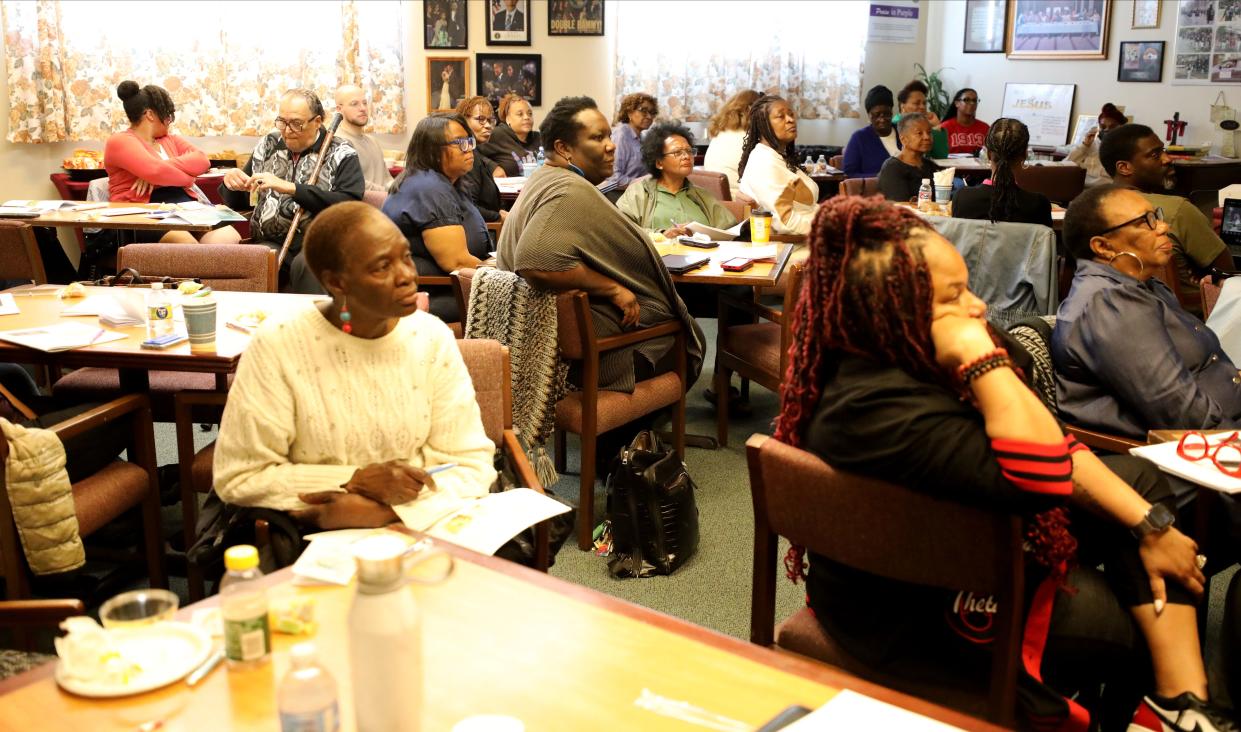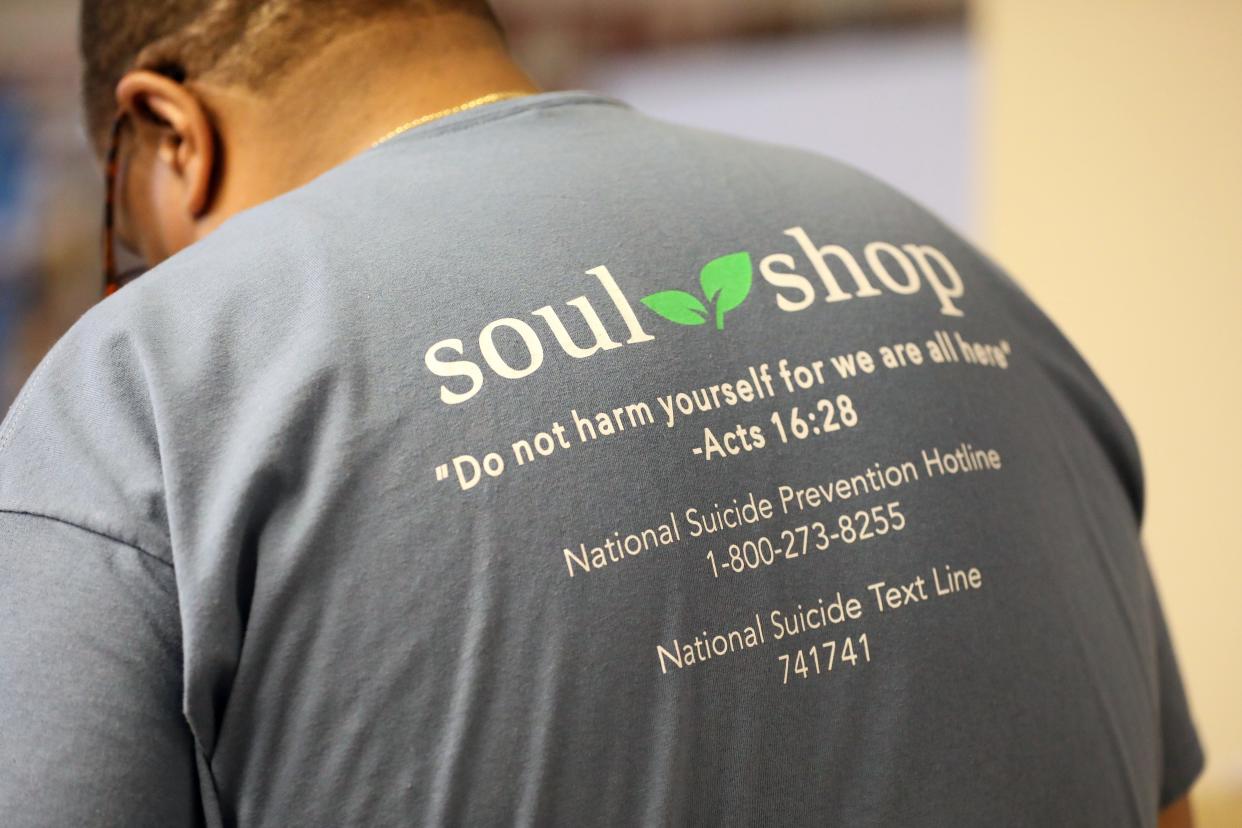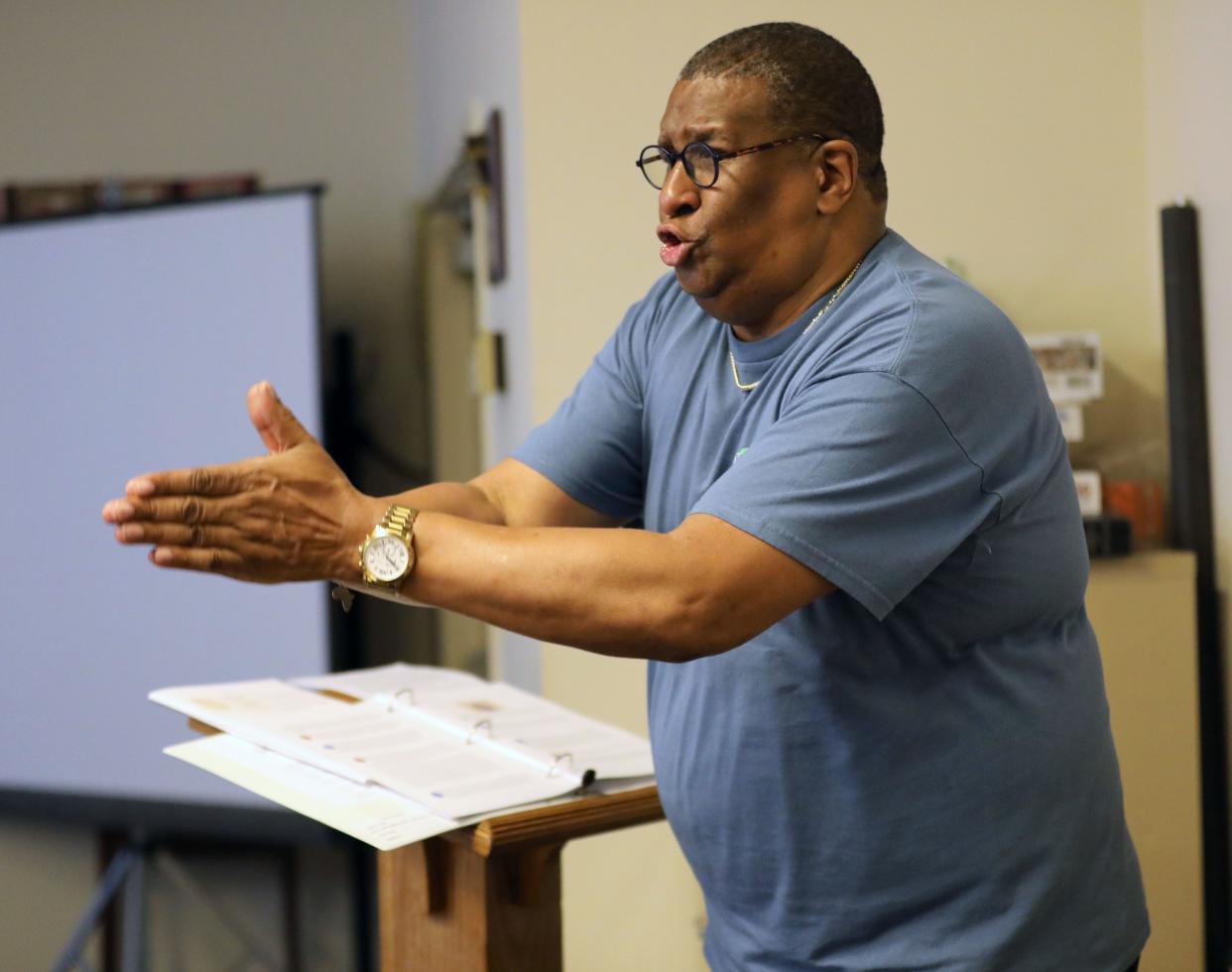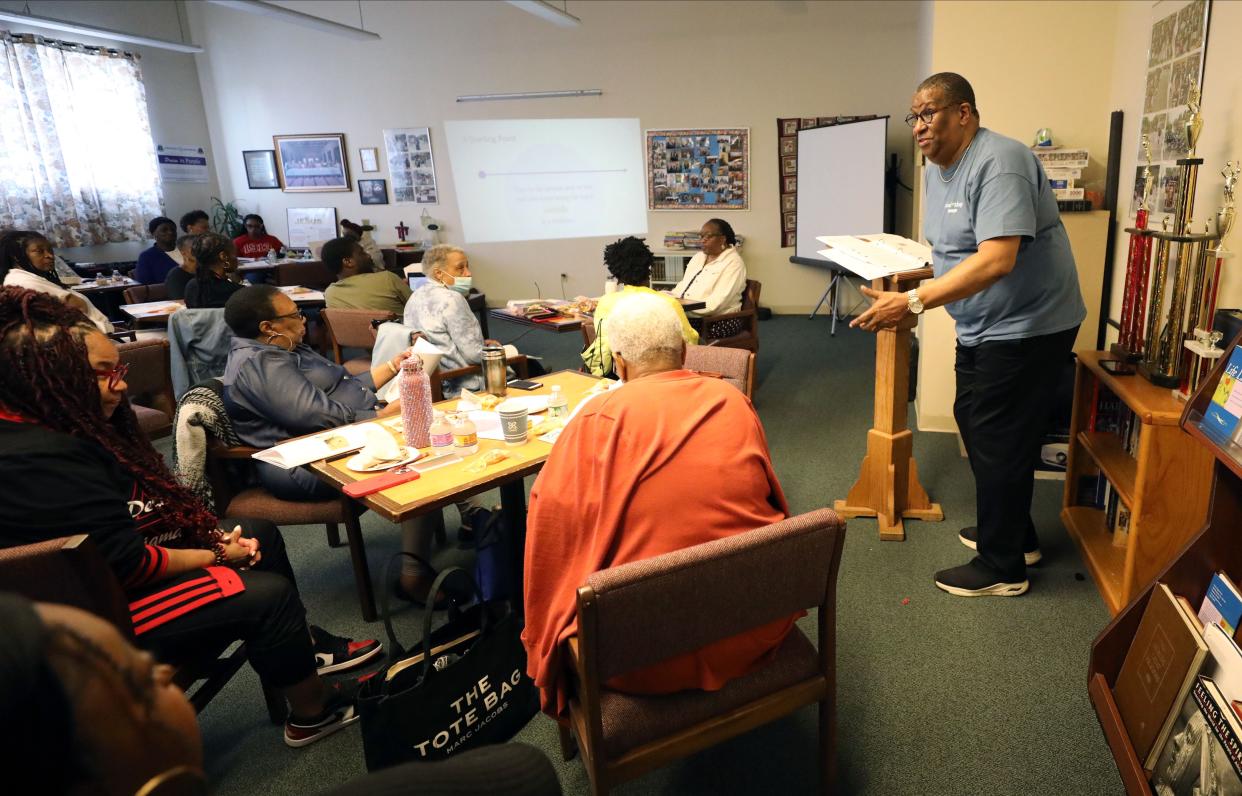Time for the Black church to drop stigma associated with suicide, Westchester clergy say
There was preaching, met with Amens and hums of affirmation. And there was prayer. But there was also straight talk about one of the most stigmatized and taboo topics in many faith communities: suicide.
On a recent Saturday, religious leaders from Westchester and the surrounding region came together to talk about the worsening mental health challenges that are confronting leaders in all walks of life, religious communities included.
Faith leaders were told that they are a vital link for people who are struggling to get help.

Calvary Baptist Church in White Plains hosted the training, titled Soul Shop for Black Churches — an offshoot of Soul Shop, a national suicide prevention program that has reached priests, imams, rabbis, a Buddhist monk and other faith leaders in Westchester. The goal of both trainings is to make religious leaders more comfortable talking about suicide and to provide guidance on how to address mental health issues in their faith communities.
"I think the faith community at large is really understanding that these issues are widespread and they are touching our community," said the Rev. Daphne Swinton, who ministers part-time at Union Baptist Church in White Plains and is one of the creators of Soul Shop for Black Churches. Those who have avoided mental health and suicide before "are seeing that they don't have a choice anymore," Swinton said in an interview.
Training programs using Soul Shop and Soul Shop for Black Churches are funded by Westchester County Suicide Prevention Task Force, the American Foundation for Suicide Prevention and other partners.
The focus on mental health is growing. Calvary Baptist has also trained pastors from across the country, so they can train members of their own faith communities. And Soul Shop for Hispanic Churches is in the works.
"In mental health and mental wellness, we often try to reach those credible messengers," said Michael Orth, Westchester's community mental health commissioner.
Religious leaders are among those messengers. People often turn to them before seeking out a mental health professional.
Shedding the shame around suicide
A resounding theme of the day-long training, facilitated by the Rev. Erwin Trollinger, pastor of Calvary Baptist Church, was that faith leaders and church members need to let go of the stigma long associated with suicide. Only then can they become resources for their communities and steer them toward professional help while continuing to offer spiritual support.
Trollinger recalled how churches had a history of not holding funerals for people who died by suicide, forcing its own members to turn to funeral homes.

"Shame has been a part of our past for too long," Trollinger told participants. People struggling with suicide are afraid of being judged or that they lack faith, he said.
"It's still like a whispered thing," the Rev. Judith Williams said of suicide. Williams, who is pastor of Shiloh Baptist Church in Tarrytown, said church leaders need to be more open to suggesting therapy to people who need help.
Her reason for attending the training was simple: "I want our church to be able to be a resource, not just be there, but to be effective."
To increase comfort with the word "suicide," Trollinger asked participants to turn to each other and use the word in a sentence. Participants also wrote prayers for those affected by suicide that they shared aloud.
And Trollinger explained they should avoid using the verb "commit" with suicide, which lumps suicide in with crimes.
The idea behind having a training specific to Black churches was so they "would understand that this is us that we're talking about," Swinton said.
A need for faith-affirming mental health treatment
Westchester County had its first Soul Shop training the day before the world shut down in March 2020. Maria Idoni, director of the American Foundation for Suicide Prevention's Hudson Valley/Westchester Chapter, helped connect the county with Soul Shop's executive director, Michelle Snyder, who did the training.
"After that it was like a no brainer. This is the direction we needed to go," Orth said. Over 130 faith leaders attended. "It was so well received by all faith-based communities," Orth said.

Trollinger had already initiated conversations between the county and faith-based leaders to discuss concerns over suicide among the clergy. So the county was already planning mental health awareness events and training.
But when the pandemic ramped up, the effort could only continue in remote meetings. The common theme was "how do we intersect faith and clinical work?" said Pat White, convener of the Westchester County Faith Based Initiative, the official name given to the partnership between the county, religious leaders and community mental health providers to address mental health and suicide.
Since the first Soul Shop training in 2020, Westchester has had over 20 sessions, as well as over 35 other trainings on mental health for religious and spiritual groups.
Soul Shop trainings began in person as the pandemic waned, but from the virtual meetings came two important achievements, White said.
One was Soul Shop for Black Churches.
The other was a realization that church members would often seek mental health treatment from professionals who would not discuss their faith. "They would not really bring that conversation into the treatment plan," White said.
So, Swinton and Minister Kim Murray Cruse, the founder of New York-based nonprofit Steadfast Women in Ministry Inc., led an effort to create a directory of faith-affirming mental health providers.
"These clinicians are willing to look at the cultural piece of the person in a dynamic way that looks at spirituality," Swinton said.
Know when to refer someone for professional help
At the training, Trollinger told clergy to ask people who are struggling if they are considering suicide. Listening, compassion and prayer can go a long way, he said.
But clergy also must know, he said, when to encourage people to get help. That's where the directory of faith-affirming mental health professionals comes in. He also encouraged them to work with the county's department of mental health.

The Black church has often been silent about suicide, but the Bible has not, Trollinger told participants.
And the shame associated with taking one's life may stem from the most well-known example of suicide in the Bible — Judas.
"I think that this topic was so taboo that no one would talk about it," Swinton said. "Now you have preaching, you have praying, you have awareness, and you are brick by brick dismantling this thing that we can't talk about, suicide. Because we can talk about it."
Contact Diana Dombrowski at ddombrowski@gannett.com. Follow her on Twitter at @domdomdiana.
This article originally appeared on Rockland/Westchester Journal News: Westchester NY clergy learn to address suicide, mental illness
